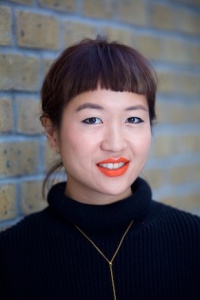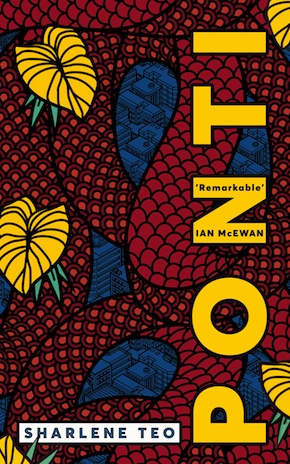Teenage heaven
by Sharlene TeoIn 2003, the big haze lingered. Severe Acute Respiratory Syndrome had broken out in Guangdong the year before and coughed and hacked its way around the region. People had died from it. Everyone was afraid of getting infected. Some wore stupid-looking hospital masks but Szu and I would rather have been caught dead than join them. We drifted around Heeren like a pair of angelfish, giving boys the discreet side-eye. Our long black hair trailed like fine, wispy tails. Our bubble voices echoed in the atria of shopping centres – Takashimaya, Far East, the Heeren. How cute is that. How does this look? Too expensive. Cheaply made. Perfect for a hot date. What hot date? Ha ha. This chit-chat of commerce. We were the target demographic, spoilt teenage schoolgirls with a proclivity for bored buying. We were more powerful than we realized.
Five months into our friendship, Szu and I developed a manic obsession with Japanese skincare. Rather, I led the way and she followed. Some days, after our hospital visit, we made a trip to Wisma. We lingered in the tiny Sasa store that lay at the foot of a giant escalator, scrutinizing poorly translated labels until the shop assistant with the rebonded hair and false, spidery eyelashes told us to leave if we weren’t getting anything. Rolling our eyes but secretly glad of the excuse, we bought things. Even whilst taking out our wallets we knew these products wouldn’t work on us; they were geared toward Japanese girls from a cooler climate, fed on a diet of miso and sashimi, with fair poreless skin. In Singapore, three seconds is all it takes for a slick to form over the forehead. Szu and I dabbed at our T-zones frantically with oil blotter papers, and drew our hands away ashamed and disgusted by the film of oil on the previously matte blue surface. The subtle scent of linen oil and fear. Would we always be like this, buying and worrying?
Teenage heaven was marble shop floors and neon signs along the sides, behind glass railings. Perfumed, safe world. Things to buy with leftover pocket money.”
During teenhood all you know is all you know, which shouldn’t be discounted. You have this one narrow window on the world, the stakes smaller but no less deeply felt. Teenage heaven was marble shop floors and neon signs along the sides, behind glass railings. Perfumed, safe world. Things to buy with leftover pocket money. A blouse, a hair clip, a tube of overpriced lip gloss that I knew, even while unwrapping it, wouldn’t make me any more attractive. Just a strange glittery oil slick gluing my mouth.
“My mother has some amazing collectibles from the film sets, but she keeps them locked away, or I would show you,” Szu liked to say and I would nod; I liked to hear it.
It didn’t matter to me that Amisa was nowhere as famous as Szu made her out to be. Or that Szu was vague about which well-known admirers had bequeathed crushed-pearl compact mirrors and exorbitant jars of cream to her mother. At the time it didn’t even occur to me: what sort of admirer would give a woman night cream as a present? I didn’t want to actually watch the trilogy in case it was terrible, and shattered the illusion. The truth is Szu and I told half-fictions to each other. We were complicit in our mutual exaggerations. Besides, I was fascinated by Amisa’s brief but alluring movie star career, a frame in which to hang our fantasies of fame, the shared suspension of disbelief. Szu’s voice took on a reverential tone when she spoke about the three movies.
We lounged in her room looking at magazines and together we coveted expensive radiance creams and glimmering eye shadow palettes themed after black-tie balls we would never attend. When Szu and I weren’t spending money we dreamt about the things we would be buying to make us feel prettier, stronger, inoculated against the world.
From Ponti (Picador hardback, £14.99)
 Sharlene Teo was born in Singapore in 1987. She has an LLB in Law from the University of Warwick and an MA in Creative Writing from the University of East Anglia, where she received the Booker Prize Foundation Scholarship and the David TK Wong Creative Writing Fellowship. She holds fellowships from the Elizabeth Kostova Foundation and the University of Iowa International Writing Program. In 2016, she won the inaugural Deborah Rogers Foundation Writer’s Award for a work in progress. Ponti, her first novel, is out now in hardback, eBook and audio download from Picador.
Sharlene Teo was born in Singapore in 1987. She has an LLB in Law from the University of Warwick and an MA in Creative Writing from the University of East Anglia, where she received the Booker Prize Foundation Scholarship and the David TK Wong Creative Writing Fellowship. She holds fellowships from the Elizabeth Kostova Foundation and the University of Iowa International Writing Program. In 2016, she won the inaugural Deborah Rogers Foundation Writer’s Award for a work in progress. Ponti, her first novel, is out now in hardback, eBook and audio download from Picador.
Read more
instagram.com/strangelikeness
@treebirds
Author portrait © Barney Poole


